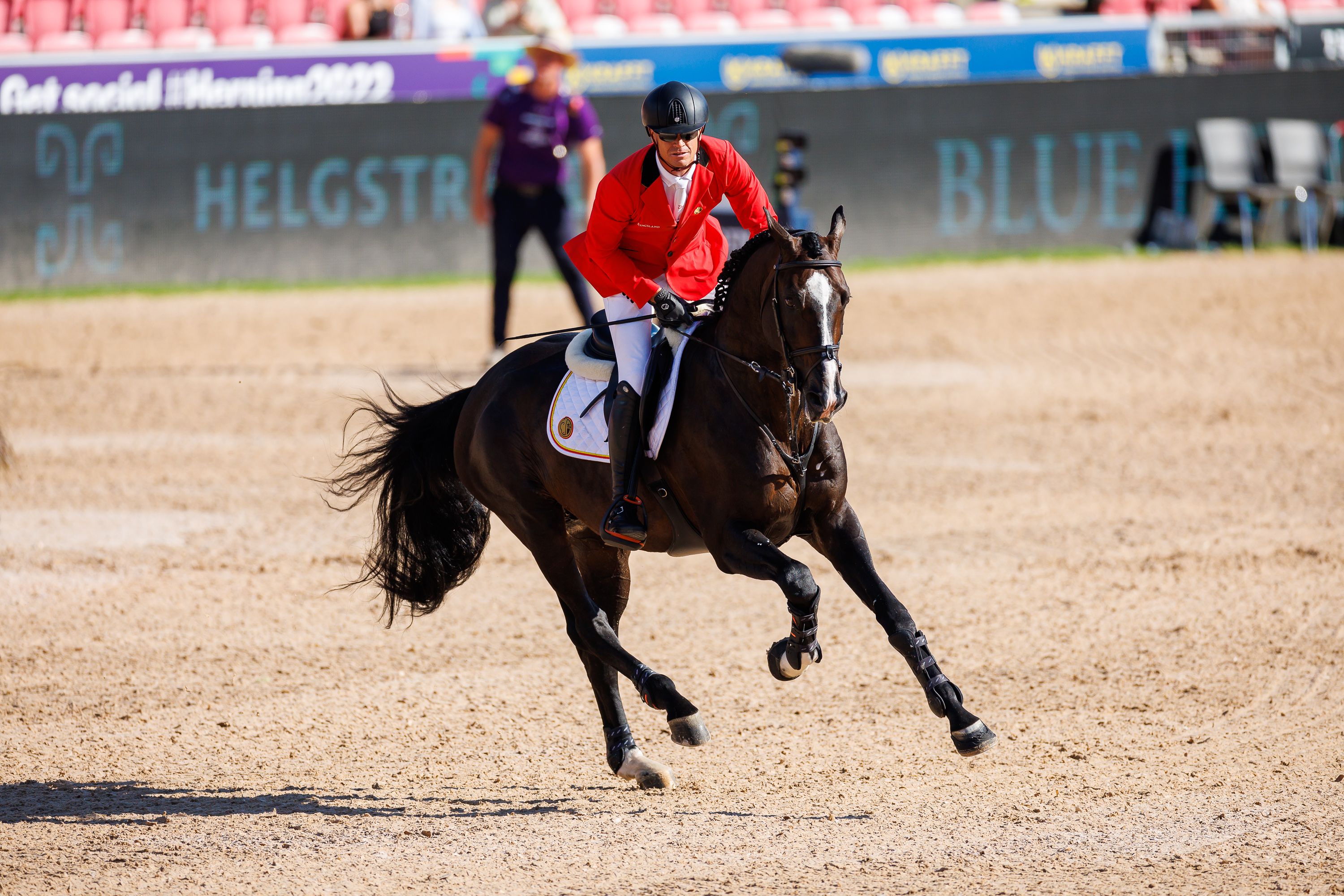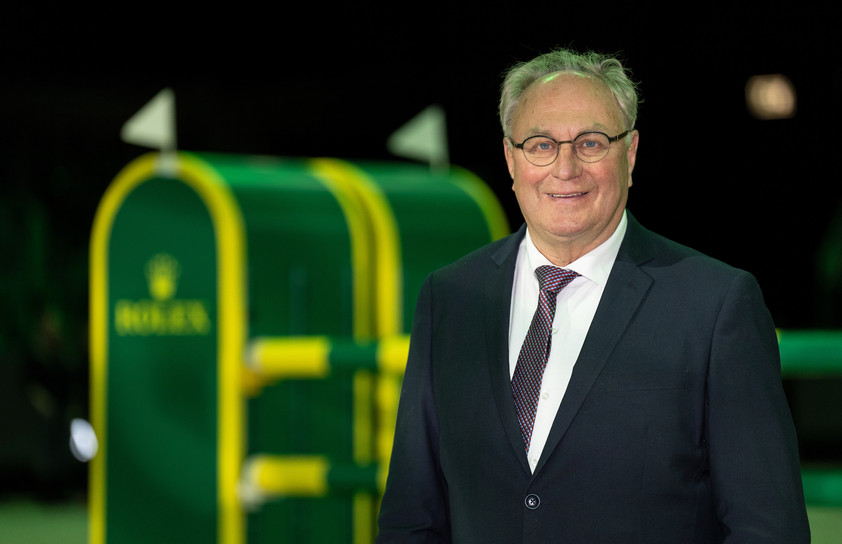Young Talents are the core of our future sport. Also Great-Britain's Harry Charles. "A piece of advice I was given was that when the horse knocks a pole down, 9/10 times it’s your fault even if you think it’s not your mistake."
When did you decide you wanted to pursue a career in show jumping?
When I was about 14 years-old, I won a big pony class in England, which at the time was probably the biggest class you could win at 16 years of age and younger, so I won that and got such a good buzz of it and realized this is exactly what I want to pursue a career in.
Do you think if you hadn’t have competed at CHIO Aachen your career wouldn’t have progressed the way it has?
Realistically CHIO Aachen is one of the biggest shows in the world. There’s so much that sponsors and event organizers can do now, so if I hadn’t gone to Aachen as young as I was at the time, I don’t think I would have got the opportunities that I have now been given.
What other opportunities have you had since then?
I think the main thing is that it has helped me connect with important people and sponsors within the sport. I made a lot of great contacts and friends there so there were so many benefits from doing that and lots of opportunities have opened up since last year.
What do you think are the three most important attributes for being a professional show jumper?
The first one is patience, something which I must improve a bit. I think it’s important because of the injuries associated with the sport, especially the horses. You can get a really talented rider who might have to sit back for a few years because of a horse being injured or maybe not having enough experience yet. You must let the horse develop at its own pace.
Second one I think is that you have to be mentally strong, something I work very hard on. I think I’m quite lucky that I am naturally quite mentally strong, but I have had to develop a lot in this area. I remember I always used to get really annoyed when I started doing the big shows and my head would drop a bit if I hit a fence, but now having a bit more experience, you realise it’s not the end of the world. As long as you learn from your mistakes, that’s all that really matters.
I think the third one is good work ethic. When I’m off the horses I now do a lot of gym work and specific training. My father once said you can never stop improving and I think that’s such a great mindset to have in this sport because you are working with two athletes; you and the horse.
Can you talk about the 5* horses you currently have? What do you see for them in the future?
I think we have got a good group of horses; I think ABC Quantum Cruise is the best horse I have at the moment. I still think he is maybe a year or two off hitting his peak, so I don’t think I have got the best out of him yet, but he is very good and very consistent. We work with him every day to try and improve him, so hopefully you will see the best of him soon.
Who are your idols / which riders do you look up to?
For me it has always been Scott [Brash]. As well as great rider, he’s a really nice guy too so he is definitely my idol. We talk about everything actually and he is always willing to help me out and lend a hand. Especially when I started doing the big shows, he was always the first one who would come and sit with me at breakfast in the morning when I didn’t know anyone, which I really appreciated.
Do you get nervous competing against them?
Not really, it makes me hungrier to be honest and it makes me want to win more. I am pretty confident, and I like to think I actually thrive on pressure and it makes me ride better.
You are almost 40 year’s younger than some of top riders who are still competing – what are the tools you need to have such a long career?
I think you have got to have patience; you don’t want to push it all too quickly. If you play it right, it can be a long sport. You’ve got to take care of yourself. I always see riders in the gym. The sport has changed so much and the margins are so tight now, I think gym work has become more important than it ever used to be.
What has been the highlight of your career so far?
Definitely competing in the Rolex Grand Prix in Aachen, that has always been the dream of mine since I was small and to be able to do it was incredible. I still have to pinch myself that I have done it to be honest with you. Sometimes when I am hacking with ABC Quantum Cruise at home, I look down and say to him, ”can you believe that we jumped the Rolex Grand Prix at Aachen”!
Now that you have tried competing in a Major, is the Rolex Grand Slam a long-term goal?
I would love to win at least one of the Rolex Majors and of course the Rolex Grand Slam, but by the time I’m 25 I would love to have won one and I think in five years its possible.
The Rolex Grand Slam Majors are promoting youth by organizing more and more U25 competitions, what is your point of view on this?
I think it is great, any chance for a young rider to jump in a top-level event like any of the Rolex shows is massively important and influential. Being among the top riders with a big crowd is just amazing, not only to inspire and motivate young riders, but also for their exposure. For example, when I was in Aachen, so many people contacted me, and I think I gained about 400 followers on my social media platforms each day I was there. Taking part in these events really does give you drive, and although you may only be able to jump two classes, it makes you even more motivated at the idea of jumping more later down the line.
If you weren’t a professional show jumper, what would you be?
I would love to be a pilot. I have a very big interest in aviation and I am actually doing my private pilot’s license.
What’s the best piece of advice you have been given?
A piece of advice I was given was that when the horse knocks a pole down, 9/10 times it’s your fault even if you think it’s not your mistake.
source: Rolex



